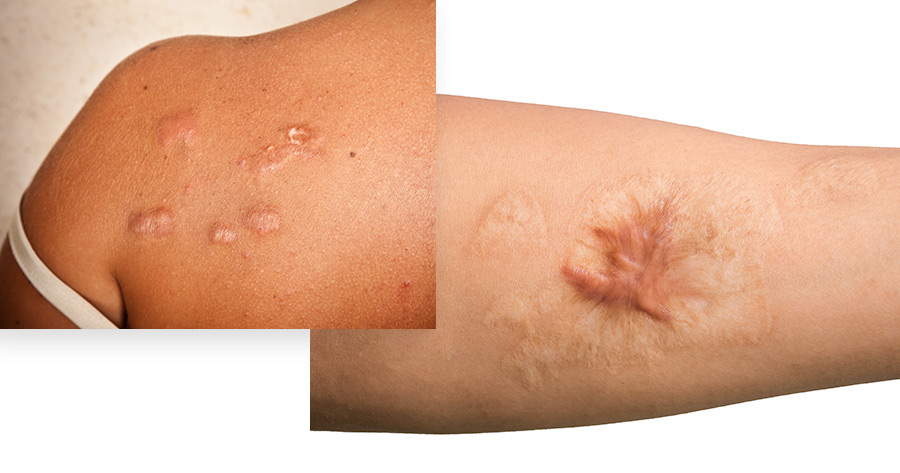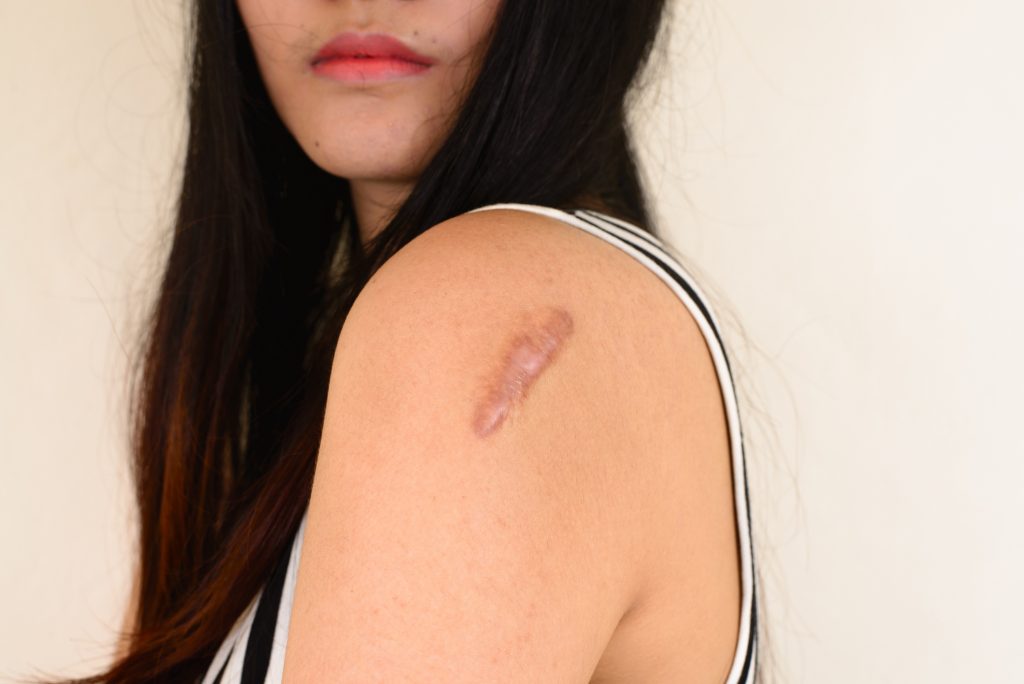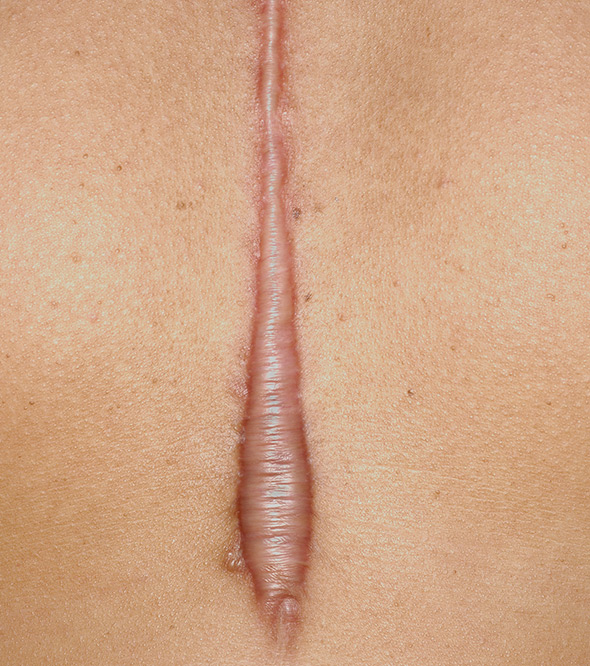Keloid Scar Treatment in New York, New Jersey & Connecticut
Keloid scars, characterized by their raised and often overgrown nature, can pose both physical and emotional challenges for those diagnosed with them.
If you or a loved one are living with a keloid scar, we are here to help.
From innovative therapies to personalized treatment plans that may include keloid scar removal, we’re dedicated to providing the insights and solutions needed to embark on a transformative journey towards smoother, more confident skin.
Continue reading to learn more about keloid scars, including what causes the scarring and the available treatment options to help you heal sooner.
What Is Keloid Scarring?
A keloid scar occurs when scar tissue continues to form after a wound has closed. It extends above the skin and is usually pink or purple. Keloid scars grow over time, and the affected area may be tender, itchy, or hurt when touched.
Keloid scars can usually be diagnosed by looking at the affected area. A biopsy may be taken to rule out the possibility of other skin conditions.
The exact cause of keloid scars is unknown, although research suggests it may be associated with the cell signals responsible for growth. Typically, keloid scars form due to infection or injury to the skin or acne. Hereditary factors may also play a role in keloid scarring.
In some cases, body piercing may cause keloid scars around the site of the piercing. While keloid scars can affect people of all skin types, they are especially prevalent in people of darker skin types. Keloid scars most commonly form on the earlobes, shoulders, chest, and back. In rare cases, they may form on the face.


Hypertrophic Scar vs. Keloid Scar
Hypertrophic and keloid scars are distinct types of abnormal scar tissue that can develop after skin injuries.
Hypertrophic scars typically appear as raised, red, or pink lesions that remain within the boundaries of the original wound or incision. They are smaller than keloid scars and often have a firmer texture. These scars form from excess collagen production during wound healing, commonly found in joints or areas under tension.
Treatment options for hypertrophic scars include silicone sheets, corticosteroid injections, and laser therapy.
On the other hand, keloid scars exhibit unique characteristics. They extend beyond the initial wound borders, growing larger over time. In fact, they often become significantly larger than the original injury site. These scars are thick, raised, and smooth or shiny. Keloids develop due to an overgrowth of scar tissue.
Unlike hypertrophic scars, keloid scarring can form on any body part. Treating keloid scars can be more challenging, involving corticosteroid injections, cryotherapy, laser therapy, and surgical removal.
Both types of scars can cause discomfort, itchiness, and emotional distress. If you believe you have a hypertrophic or keloid scar, it is essential to visit an experienced dermatologist for an accurate diagnosis and a personalized treatment plan.
Keloid Scar Treatment
Although keloid scar removal is the goal for most patients diagnosed with this skin condition, scarring cannot always be eliminated. In some cases, they can only be reduced in appearance.
Several treatment options are currently available:
- Monthly cortisone injections
To reduce the size of the keloid scar. Scarring may still be visible following treatment). - Pulsed dye lasers
To flatten keloid scars and lighten their appearance. This course of treatment requires multiple sessions and is not usually covered by insurance. - Cryotherapy
To freeze keloid scars using liquid nitrogen. Although this will flatten the scars, they may also become darkened. - Cryoshape
To destroy keloid cells with a cold cryoprobe. This new and innovative treatment has proven highly effective, with over 97% of patients experiencing a significant reduction in the size of their keloids. - Radiation
To effectively reduce the appearance of keloid scars. - Interferon injections
To reduce the appearance of keloid scars. Studies suggest that interferon injections can reduce the appearance of keloid scars, although its long-term results are not yet apparent. Interferons are illness-fighting proteins produced by the body’s immune system. - Fluorouracil
To reduce the appearance of keloid scars. Fluorouracil is a chemotherapy drug. - Silicone sheets
To reduce the appearance of keloid scars. Silicone sheets can be worn on the site of the keloid scar for several hours over a few weeks. Its success varies. - Surgery
To remove keloid scars. This treatment must be combined with steroidal injections or radiation to minimize recurrence rates.
The exact course of treatment for a keloid scar varies from patient to patient. Your dermatologist will develop a customized treatment plan based on your specific condition and medical history.

